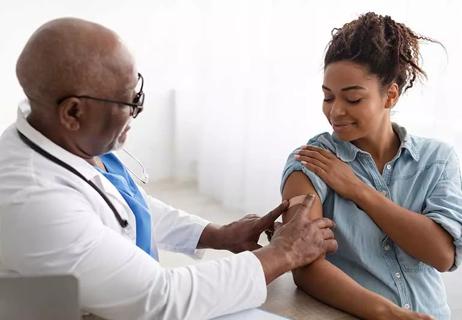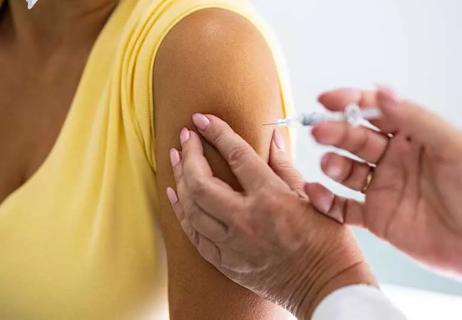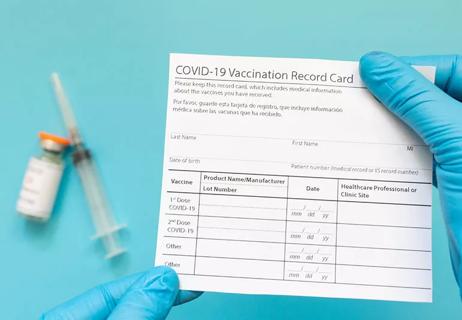Advertisement
The short answer from an infectious disease specialist

A: Yes, but there are stipulations. The CDC recently announced guidelines on public health recommendations for Americans fully vaccinated from COVID-19. A person is considered fully vaccinated two weeks after they have received the second-dose of the Pfizer or Moderna vaccine, or at least two weeks after receiving the single-dose Johnson & Johnson vaccine.
Advertisement
Cleveland Clinic is a non-profit academic medical center. Advertising on our site helps support our mission. We do not endorse non-Cleveland Clinic products or services. Policy
People who are fully vaccinated can now attend small, indoor gatherings without masks with others who are fully vaccinated. Fully vaccinated individuals may also have small gatherings with others from a single household who are not vaccinated – as long as no one in the household is considered high-risk.
In addition, fully vaccinated people do not need to quarantine or get tested if they have been in close contact with someone who is positive for COVID-19 and if they are asymptomatic. However, if the fully vaccinated person has been around someone who is sick and they are experiencing symptoms themselves, they should get tested and stay away from others.
It’s important to note that fully vaccinated people should continue to wear face masks and maintain physical distance while in public spaces, as well as avoid medium and large gatherings. They should also avoid being in direct contact with unvaccinated people from multiple households as well as unvaccinated people at high-risk or those living with unvaccinated people at high-risk.
There is still much to learn about how effective the vaccines are against the COVID-19 variants and whether or not the vaccines keep people from spreading the virus. Early data shows there may be a reduction in transmission among vaccinated people. For that matter, it’s always a good precaution to mask up, distance and observe precautions when you’re unsure. We will continue to watch for updated guidance from the CDC as more data becomes available.
Advertisement
– Infectious disease specialist, Kristin Englund, MD.
Advertisement
Learn more about our editorial process.
Advertisement

Children as young as 6 months should get vaccinated, but dosage guidelines depend on kids’ ages and past vaccines

Updated vaccinations are recommended to better protect against the evolving virus

Redness, swelling, itching and rash can happen when your body’s immune system reacts to the vaccine injection

The latest vaccine offers the most up-to-date protection

Irregularities in cycle length and flow aren’t a cause for concern

Before you panic, here are the options to consider

Our expert explains why swollen lymph nodes happen

And why you shouldn't be so quick to post your COVID-19 vaccine card on social media

If you’re feeling short of breath, sleep can be tough — propping yourself up or sleeping on your side may help

If you fear the unknown or find yourself needing reassurance often, you may identify with this attachment style

If you’re looking to boost your gut health, it’s better to get fiber from whole foods